- Treatment of Acute Migraine Headache - (https://www.aafp.org/afp/2011/0201/p271.html)
- The diagnosis and treatment of chronic migraine - (https://www.ncbi.nlm.nih.gov/pmc/articles/PMC4416971/)
How is Migraine Treated?
Diagnosis of migraine is usually done by assessing the pattern of development of headache, family history of migraine and the response to analgesics taken to stop the headache.
Once diagnosed the most important thing is to avoid the triggering factors of migraine.
- Women who have migraines just prior to their menstrual period should reduce salt in their diet. This helps to decrease water retention associated with precipitating attacks.
- Avoid alcoholic beverages. Alcohol causes the blood vessels in the body to widen, which contributes to the pain of migraines.
- If stress triggers the onset of a migraine, relaxing and reducing the stress can be helpful.
- A regular schedule for sleep is necessary if fatigue leads to attacks.
- Regular exercise (e.g., walking and swimming) and relaxation techniques (e.g., yoga, meditation) can be helpful.
Treating a migraine attack- Several medications may be advised to relieve symptoms. The response of migraine to medications is highly variable.
Analgesics may reduce pain if they are taken early in the development of the headache. Resting in a darkened room without any noise often reduces the severity of symptoms. If this does not help then the doctor can prescribe triptans (relieves pain and nausea), ergotamines or corticosteroids.(7✔ ✔Trusted Source
Treatment of Acute Migraine Headache
Go to source, 8✔ ✔Trusted Source
The diagnosis and treatment of chronic migraine
Go to source)

Other medications used to treat the symptoms of migraine-
- Anti-emetics- to reduce nausea and vomiting.
- Sedatives
- Narcotic pain killers
Preventive Migraine Drugs-
- Antidepressants- amitriptyline or venlafaxine
- Blood pressure medicines- beta blockers (propranolol) or calcium channel blockers (verapamil)
- Seizure medicines- valproic acid, gabapentin and topiramate
Alternative Therapies-
- Acupuncture
- Physiotherapy
- Yoga
- Meditation
- Herbs like 'Fewerfew'
 MEDINDIA
MEDINDIA

 Email
Email






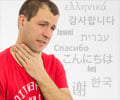
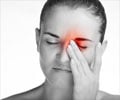
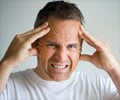

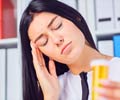


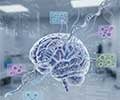

TODAY'S MIGRAINE HIS REAL DANGER'S IN INDIA AND GUJARAT STATE
ALL MEGA CITY, TOWN, VILLAGE.